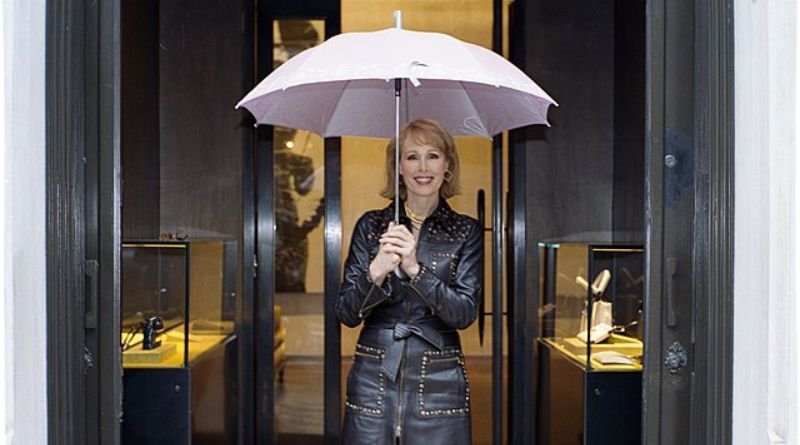
In a groundbreaking ruling, a New York jury has directed former President Donald Trump to shell out a substantial $83.3 million to E. Jean Carroll. The verdict stems from accusations that Trump tarnished her reputation as an advice columnist by branding her a liar following her sexual assault allegations against him.
The Award Breakdown: A Closer Look at the $83 Million
The jury’s decision breaks down into $65 million in punitive damages, $11 million for the harm inflicted on Carroll’s reputation, and an additional $7.3 million. Trump, however, is poised to appeal the verdict, signaling that this legal battle is far from its conclusion.
The Unsurprising Outcome: Setting the Stage
While the enormity of the penalty may catch some by surprise, Judge Lewis Kaplan had already ruled, pre-trial, that Trump had indeed defamed Carroll. The jury’s task was clear-cut — determining the extent of financial restitution, not Trump’s liability. This marks the second time Trump has been ordered to pay Carroll, following a previous mandate of $5 million in a separate defamation case last year.
Trump 2024 Campaign Responds: Labeling it a “Political Weapon”
In response to the verdict, the Trump 2024 campaign issued a statement dismissing the trial as a “political weapon” without presenting any supporting evidence. The statement vehemently disagreed with both verdicts, pledging to appeal what it characterized as a “Biden Directed Witch Hunt” targeting Trump and the Republican Party.
Trump’s Take: A Disagreement and a Call for Appeal
Trump, a vocal participant throughout the trial, expressed his disagreement with the verdict during campaign rallies in Iowa and New Hampshire. He denounced the trial as election interference, echoing sentiments similar to those that led to the lawsuit in the first place.
The Context: Trump’s Legal Landscape
This legal saga unfolds just days after Trump’s victory in the New Hampshire primary, solidifying his status as the GOP front-runner. However, this is just one of several legal battles for the former president. Trump faces another impending verdict in a civil trial that could potentially cost him over $250 million for alleged fraudulent business practices in New York. Additionally, there are 91 charges across federal and state trials, encompassing everything from the New York cases to federal charges related to the January 6 Capitol riot.
Unpacking the 2019 Accusation: Carroll vs. Trump
Delving into the heart of the matter, in 2019, E. Jean Carroll, a renowned advice columnist and freelance writer, accused Trump of sexually assaulting her in the ’90s. The detailed account surfaced in a New York magazine article and was later expounded upon in her book.
Trump’s Denial and the Alleged Defamation
In response to the article, Trump issued two statements, outright denying Carroll’s claim and asserting, “she was not my type.” This prompted Carroll to file a defamation lawsuit, contending that Trump’s comments tarnished her credibility as a reliable media source. The fallout included a barrage of insults, threats, and menacing messages directed at Carroll’s social media accounts.
Legal Roadblocks and Reversals: A Timeline
Trump’s Attorney General, Bill Barr, initially blocked the lawsuit, arguing that Trump’s statements were made in his official capacity as president. This impasse persisted for several years until 2023 when Biden’s Justice Department reversed course, allowing the defamation lawsuit to move forward.
Carroll’s Testimony: A Personal Fallout
Taking the stand as the first witness, Carroll conveyed the profound impact of Trump labeling her a liar, stating it “ended the world I had been living in.” Once a recipient of hundreds of advice-seeking emails, she attested to receiving less than 10 a month post-allegations. Threats and insults replaced the once constructive dialogue, as evidenced by social media posts and messages presented to the jury.
Legal Duel: Carroll vs. Trump’s Defense
Trump’s lawyer, Alina Habba, argued against attributing damages directly to Trump, pointing to social media posts made during a “gap” between Carroll’s allegations and Trump’s subsequent comments. The defense also questioned Carroll’s motive for suing and deleting threats from her email.
Trump’s Brief Stand: Maintaining the Defense
After weeks of anticipation, Trump took the witness stand on January 25, asserting he “100%” stood by his earlier deposition. He denied instructing harm to Carroll and reiterated his aim to defend himself, his family, and his presidency. Trump’s presence in the courtroom prompted Judge Kaplan to issue warnings about potential disruptions.
Trump’s Narrative: Outside the Courtroom
Beyond the legal proceedings, Trump continued to voice his perspective, deeming the trial as election interference during campaign rallies and interactions with the media. Judge Kaplan reprimanded him for commenting during Carroll’s testimony, underscoring the tension surrounding this high-profile case.



